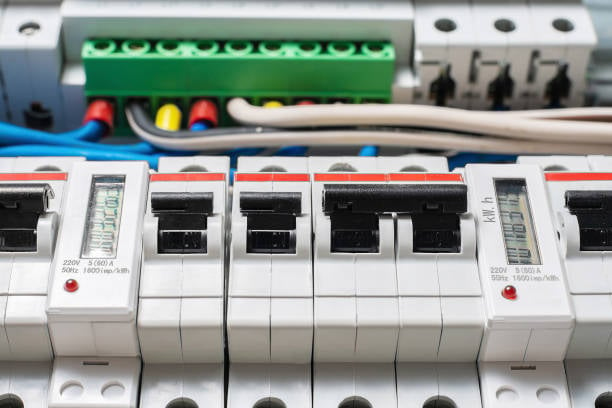Understanding the Importance of a Residual Current Device
In the world of electrical safety, a Residual Current Device (RCD) plays a pivotal role in preventing electrical accidents and protecting individuals from electric shock. This informative article aims to shed light on the significance of an RCD, its functionality, and why it should be an essential part of every electrical circuit.
The Basics: What is a Residual Current Device??
A Residual Current Device, also commonly referred to as a residual current circuit breaker or an earth leakage circuit breaker, is an electrical device designed to quickly detect and interrupt any abnormal current flow to prevent potential hazards. It serves as a safety mechanism by monitoring the current flowing through a circuit and automatically disconnecting the power supply if it detects a leakage or imbalance.
How Does a Residual Current Device Work?
A Residual Current Device operates on the principle of Kirchhoff's current law. It continuously compares the current flowing into an electrical circuit with the current returning from it. If there is any discrepancy between the two currents, this indicates a leakage, which suggests that some current is flowing through an unintended path, such as through a person or into the ground. The RCD then quickly interrupts the power supply to prevent any potential harm.
Types of Residual Current Devices
There are two main types of RCDs: the fixed RCD and the portable RCD. The fixed RCD is installed at the distribution board or fuse box and provides protection for all connected circuits. On the other hand, portable RCDs, also known as plug-in RCDs or socket RCDs, can be easily inserted into a standard electrical outlet and provide protection for specific appliances or equipment.
The Importance of Residual Current Devices
Residual Current Devices are crucial for electrical safety and offer several benefits:
- Protection against electric shock: RCDs can detect even small leakages of current, which may not be sufficient to trigger a conventional circuit breaker. By quickly cutting off the power supply, they significantly reduce the risk of electric shock.
- Prevention of electrical fires: Faulty electrical appliances or wiring can lead to electrical fires. RCDs can identify and interrupt abnormal current patterns, preventing potential fire hazards.
- Enhanced electrical system reliability: By promptly disconnecting the power supply upon detecting a fault, RCDs help prevent damage to electrical equipment and systems, minimizing downtime and repair costs.
- Compliance with electrical safety regulations: Many countries and jurisdictions mandate the installation of RCDs in certain residential, commercial, and industrial settings to ensure compliance with electrical safety standards.
Installation and Testing
Residual Current Devices should be installed by a qualified electrician to ensure proper functionality and adherence to electrical regulations. Regular testing is also essential to guarantee the ongoing effectiveness of RCDs. This can be done using the test button provided on the device, which simulates a fault to verify that the RCD trips and cuts off the power supply as intended.
Common Misconceptions about RCDs
There are several misconceptions surrounding RCDs that are important to address:
- RCDs are only necessary for outdoor use: While RCDs are indeed crucial for outdoor electrical installations, they are equally important indoors, especially in areas where water and moisture are present, such as kitchens, bathrooms, and laundry rooms.
- RCDs eliminate the need for proper grounding: While RCDs provide an additional layer of protection, they do not replace the necessity of proper grounding. Both grounding and RCDs work together to ensure electrical safety.
- RCDs are only needed in commercial or industrial settings: RCDs are beneficial in any setting where electricity is used, regardless of whether it is residential, commercial, or industrial. Everyone should prioritize electrical safety.
Conclusion
A Residual Current Device is an indispensable safety device that plays a vital role in preventing electrical accidents and protecting individuals from electric shock. By detecting abnormal current flow and promptly disconnecting the power supply, RCDs significantly reduce the risk of electric shock and electrical fires. Whether it is for residential, commercial, or industrial purposes, the installation of RCDs should be a top priority to ensure electrical safety and comply with regulations.

